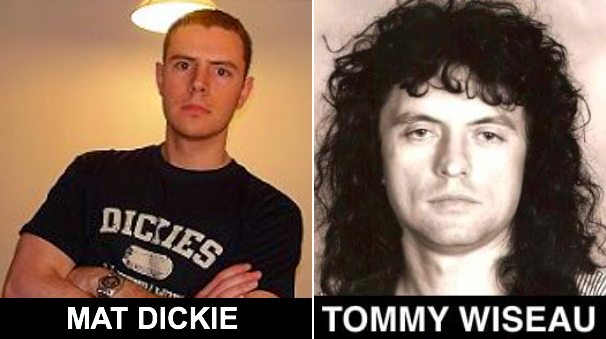
Recently, Mat Dickie boarded a train out of London and came across a kid, face-down in a smartphone game, sitting in Dickie's ticketed seat. As the furious tapping played out in front of him, Dickie contemplated whether he should hassle this transit gamer or just find an empty spot elsewhere. The solution ultimately revealed itself when the developer got close enough to catch a glimpse of the boy's screen: Wrestling Revolution 3D.
By now, the sports simulator gaming genre is as tried and true as sports itself. The Football Manager franchise has been delighting international audiences for 25 years-plus, nudging even stateside developers to take notice within the last decade (how else do you explain Madden spin-off, NFL Head Coach, sneaking into a release cycle full of familiar 2K titles?). But Wrestling Revolution 3D holds an unusual position within this landscape—it's the genre's most unexpected yet successful mobile title.
In 2017, Wrestling Revolution 3D became the first sports sim to surpass 50 million downloads. Today, the Google Play Store lists it in the "50,000,000 to 100,000,000" download category. Officially licensed games from the UFC and WWE, for comparison, stall at around 10 million downloads. Dickie knows all this because he's not only a fan—he's a long-time independent developer better known as MDickie. Wrestling Revolution 3D is his most successful game to date.
"I didn’t know whether to throw him off the train or pat him on the back,” Dickie jokes.
Looking at Wrestling Revolution 3D, you'd never guess its historic level of success or pervasiveness. The graphics are blocky and dated compared to modern sports simulators. It doesn't enjoy a professional-league licensing deal, so the characters are all weird knock-offs ("Nightshift" and not The Undertaker; "Jimi Sierra" and not John Cena; "Hank Slogan" and... you get it). And the gameplay, well... it may enjoy some level of fandom because of just how objectively bad it is.
For many, MDickie may be to video games what The Room's Tommy Wiseau is to film. Allow an August 2017 play-through from gaming site Giant Bomb—in which players call the experience "hell on Earth"—to partially explain.
"This game is 39 megs, and I feel like [Dickie] is in on it—I think he knows these games are kind of bad," host Dan Ryckert says in the introduction.
"I've been hearing about the MDickie stuff for years... the thing people always talk about are the customization elements," co-host Alex Navarro says. (In fairness, the duo soon scrolls through a seemingly endless amount of character selections and match customization options.) "But it's the part where you play them that people seem a little less hot on."
Ryckert goes on to call the game "goofy as shit" and "janky and broken, but in a way I find very funny. I may get more enjoyment out of this than I do the 2K games."
Navarro compares the experience to playing with '90s action figures. "The kind of way you'd wrestle with them is to make all the moves at 2/3rd speed and you'd have to laboriously flip them to make the wrestlers do the moves," he says. "That's what this looks like—it looks like someone playing with action figures that are as stiff as early '90s action figures. There's no reason they should have to move at this speed, but they do."
So to carry the Wiseau analogy through, by some accounts Dickie has singlehandedly made some of the best worst video games in history. But unlike Wiseau—who made one singularly bad film and only later built something resembling a side gig from it—Dickie has enjoyed a nearly 20-year career independently creating a range of surprisingly deep, accomplished, and janky video games by himself.
Wrestling Revolution 3D may represent something of a commercial and statistical breakthrough, but it's merely the latest chapter in Dickie's story of perseverance and peculiarity. And throughout it all, the developer has stayed true to himself while the whole industry changed right alongside.
stunt.zip
Born in the early '80s, Dickie grew up in the height of the console era. Accordingly, he wanted to be a game developer ever since he was a child, sketching out ideas for games with their own internal logic. And this looked like a fairly realistic goal for a young boy at the time. The history of video games before the late 1990s/early 2000s megaboom is characterized by committed amateurs and solitary enthusiasts making games in their bedrooms. Even video games like PONG were, in reality, small productions coded by a single person or a handful of collaborators. Many of the console games in the first 1980s gaming boom were produced by hobbyist gamers who simply managed to sell their work to a distributor.
In 2000, when he was a mere teenager, Dickie publicly released his first game. It was a 450-kilobyte .zip file named stunt.zip; the game itself was called Hardy Boyz Stunt Challenge. It allowed players to take on the role of one of the two Hardy Boyz, professional wrestlers for the then-WWF who had a penchant for jumping off high places, like the tops of ladders or bleachers in sports arenas. Players essentially gained points for the complexity of the stunts they performed.
It took Dickie two weeks to make the game after he walked through his local branch of Woolworths and spotted a package on the software shelves called Div Games Studios. Created by a Spanish company, Div was a programming language kind-of sort-of like C that was born during the days of MS-DOS gaming.
"It promised to make game development easy," Dickie tells Ars. "I picked it up, took it home, and spent the summer of 2000 teaching myself how to use it from the examples."
The 17-year-old was studying computing at college at the time. So after just a couple weeks, he managed to build the basic mechanics of the game: jump off as high a point as possible, do some crazy stuff, earn points. He was more-or-less satisfied with his work, so he got in touch with a wrestling website called Tha Warzone that he used to frequent. “I said, ‘I’ve made a game about wrestling; it’s quite topical. Why don’t you throw it up on your website and let people download it?’”
The owner of the site agreed to do so, and around 15,000 people downloaded the game. “The feedback was really positive,” says Dickie. “I was getting fan mail saying, ‘Can we have more of this?’ That gave me the impetus to make more.”
Dickie soon wrote down an affirmation he'd cribbed from his childhood hero, Bruce Lee (words from the martial arts' legend still greet visitors to Dickie's website). At an early age, Lee had written down that, in 10 years’ time, he’d be the highest-paid movie star in Hong Kong—and, lo and behold, he ended up doing just that. Dickie’s affirmation was a little different and multifaceted.
“I want to make games for a living. I want to run my own wrestling company,” Dickie recalls. “Be rich. Travel the world.”
reader comments
74